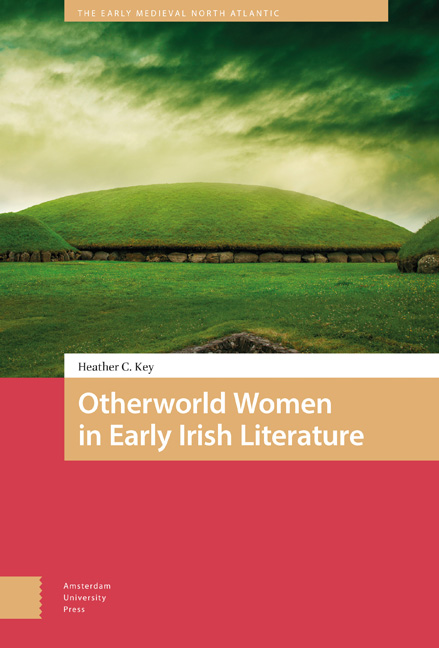1 - Women in Early Ireland
Published online by Cambridge University Press: 24 November 2023
Summary
Status of Women
There is a tendency in popular culture to think of women in early Ireland as less oppressed than their continental counterparts; to think that they had more freedoms and were treated with a higher regard than in other medieval cultures. This is a fallacy based largely on the romanticization of women in the saga literature, along with misunderstandings of early Irish marriage and divorce laws caused by a lack of understanding of their cultural context.
The primary legal source on marriage was the eighth-century text Cain Lanamna (Eska 61–62). While commenting on a variety of sexual unions, it recognized three primary forms of marriage: union of common contribution (Lanamnas comthinchuir); union of a woman on a man's contribution (lanamnas mna for ferthinchur); and union of a man on a woman's contribution (lanamnas fir for bantinchur [Ó Corráin 47–50]). In the first form, the man and woman bring equal amounts of property to the marriage; in the second, the woman might bring some property, but the primary contribution would be the man's (47). The woman's would be moveable property, such as cows, as a woman could not inherit land unless her father died without sons, and even then it reverted to her male kin on her death (52). This was the defining circumstance of the final type of marriage listed above. Here, the woman brought the property and the roles were reversed. Usually a woman would marry someone from her own kin, but occasionally she would marry an outsider. Such a man would be even more dependent on his wife. Any man who left his own tuath – which could loosely be translated as ‘kingdom’ – had no rights, unless he was a king or belonged to a particular group of craftsmen, and those who did so were regarded with some contempt. In fact, it was considered acceptable under the law to refuse to pay honour price for killing one type of outsider, the ambue (F. Kelly, Guide 4–5). This being the case, it is unlikely that many left their own tuath lightly.
The laws recognized two types of men who resided outside their native tuath. One was the above-mentioned ambue, which has been translated as ‘stranger’ or ‘outlaw’ (Charles-Edwards, “Social Background” 52; F. Kelly, Guide 5). The other was the cu glas or ‘grey dog.’
- Type
- Chapter
- Information
- Otherworld Women in Early Irish Literature , pp. 13 - 34Publisher: Amsterdam University PressPrint publication year: 2023



